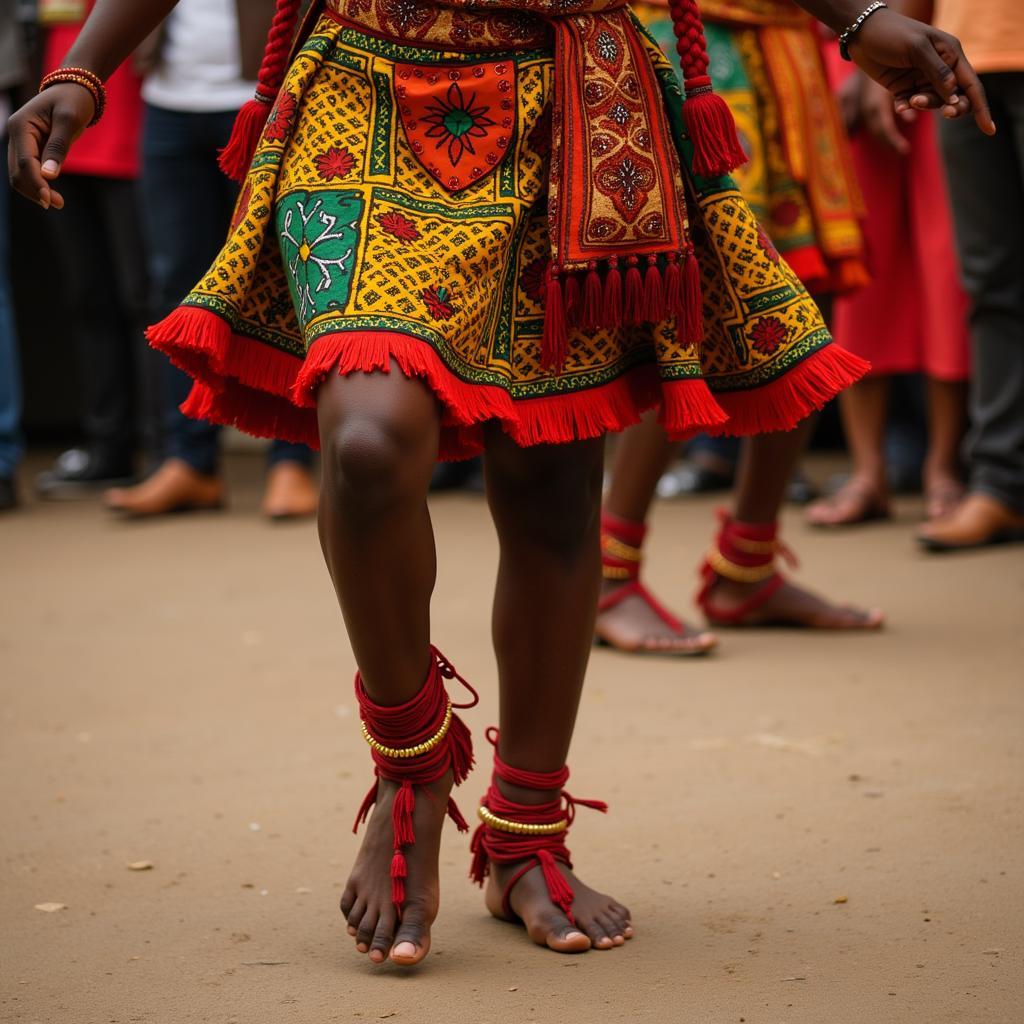African American Skin Care Issues: A Comprehensive Guide
African American Skin Care Issues often present unique challenges due to variations in melanin production and skin structure. Understanding these differences is crucial for developing an effective skincare routine. This guide will delve into common concerns, offer practical solutions, and empower you to embrace the beauty of your unique complexion.
Understanding the Nuances of African American Skin
African American skin possesses a higher melanin content, providing natural protection against sun damage. However, this also means it’s more prone to hyperpigmentation (dark spots) following inflammation from acne, eczema, or injury. The skin’s structure can also differ, often being more prone to dryness and requiring specialized moisturizing techniques. It’s essential to understand these nuances to address specific skin care needs effectively. For example, while all skin types benefit from sunscreen, finding one that doesn’t leave a white cast is particularly important for darker skin tones. Choosing the right products is crucial, so always opt for those specifically formulated for your skin type. After a breakout, it’s crucial to address hyperpigmentation proactively to prevent lasting dark spots.
Following an appointment with an African American therapist, I gained a deeper understanding of the cultural pressures surrounding beauty standards and their impact on self-esteem. This highlighted the importance of embracing one’s natural beauty and developing a skincare routine that promotes healthy skin rather than striving for unrealistic ideals.
Common Skin Care Concerns and Solutions
Several skin concerns are more prevalent in African American skin. Acne, eczema, and ingrown hairs are common, often requiring tailored treatment approaches. Understanding these concerns and their root causes can significantly improve your skin health.
Acne and Hyperpigmentation
Acne is a common struggle, and for those with darker skin, it can often lead to post-inflammatory hyperpigmentation (PIH). This results in dark spots or patches where blemishes have healed. Using non-comedogenic products (those that don’t clog pores) and incorporating ingredients like salicylic acid or benzoyl peroxide can help manage acne. Targeting PIH requires ingredients like vitamin C, niacinamide, and retinoids, which can brighten the skin and even out skin tone.
Eczema and Dryness
African American skin is often prone to dryness and eczema, a chronic condition characterized by itchy, inflamed skin. Maintaining adequate moisture is crucial. Look for rich moisturizers containing humectants like hyaluronic acid and emollients like shea butter. Avoid harsh soaps and detergents that can strip the skin of its natural oils. A lukewarm shower is gentler than a hot one.
Ingrown Hairs and Razor Bumps
Ingrown hairs and razor bumps, often occurring after shaving or waxing, are another common concern. Exfoliating regularly can help prevent ingrown hairs by removing dead skin cells that can trap hairs. Shaving in the direction of hair growth and using a sharp razor can also minimize irritation.
What are the best moisturizers for African American skin?
Look for moisturizers with humectants like hyaluronic acid and emollients like shea butter.
You might be interested in finding an African American divorce lawyers near me.
Building a Personalized Skin Care Routine
Developing a consistent skincare routine is key to maintaining healthy, radiant skin. This should include cleansing, toning, moisturizing, and sun protection. Consulting with a dermatologist can provide personalized recommendations based on your specific skin type and concerns.
Choosing the Right Products
Selecting products formulated for your skin type and concerns is essential. Look for ingredients that address your specific needs, such as those mentioned earlier for acne, hyperpigmentation, and dryness. Avoid harsh chemicals and fragrances that can irritate sensitive skin.
Sunscreen: A Non-Negotiable
Regardless of skin tone, sunscreen is crucial for protecting against sun damage, premature aging, and skin cancer. Choose a broad-spectrum sunscreen with an SPF of 30 or higher and apply it daily, even on cloudy days. For those struggling to find a sunscreen that doesn’t leave a white cast, mineral-based sunscreens with zinc oxide or titanium dioxide can be a good option.
Dr. Adeola Ogunbiyi, a leading dermatologist specializing in ethnic skin, emphasizes, “Sunscreen is the single most important product in any skincare routine, regardless of ethnicity. For African American skin, it’s crucial for preventing hyperpigmentation and protecting against long-term sun damage.”
Looking for an African American dentist in Southfield MI?
Embracing Your Natural Beauty
Healthy skin is beautiful skin. Understanding and addressing your specific skin care needs can empower you to embrace your natural beauty and achieve a healthy, radiant complexion.
Dr. Chinara Nwosu, a cosmetic chemist specializing in skincare formulation, advises, “Focus on ingredients that address your specific concerns and avoid trends that may not be suitable for your skin type. Consistency and patience are key to achieving long-term results.” You might also find helpful resources on African Dall Models.
African American skin care issues require a nuanced approach. By understanding your skin’s unique characteristics and adopting a consistent, personalized routine, you can achieve and maintain healthy, glowing skin. Remember that seeking professional advice from a dermatologist or esthetician can provide further guidance and support.
FAQ
- What are the most common skin care issues for African Americans? Acne, hyperpigmentation, eczema, and ingrown hairs are common concerns.
- How can I prevent hyperpigmentation? Use sunscreen daily, treat acne promptly, and incorporate brightening ingredients like vitamin C and niacinamide.
- What are the best ingredients for dry African American skin? Hyaluronic acid, shea butter, and ceramides can help hydrate and lock in moisture.
- How can I prevent ingrown hairs? Exfoliate regularly, shave in the direction of hair growth, and use a sharp razor.
- Is sunscreen necessary for African American skin? Yes, sunscreen is crucial for all skin tones to protect against sun damage and hyperpigmentation.
- How often should I exfoliate my skin? 1-2 times a week is generally recommended, but adjust based on your skin’s sensitivity.
- Should I see a dermatologist for my skin concerns? Consulting a dermatologist can provide personalized recommendations and treatment options.
Looking for an African American therapist? Check out our resources!
If you need further assistance with African black ebony white ick, we have resources available for you.
Need More Help?
When you need support, please contact us at Phone Number: +255768904061, Email: kaka.mag@gmail.com Or visit us at: Mbarali DC Mawindi, Kangaga, Tanzania. We have a 24/7 customer service team.

